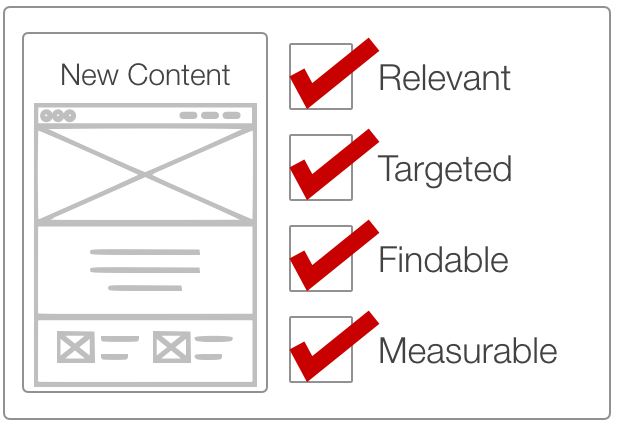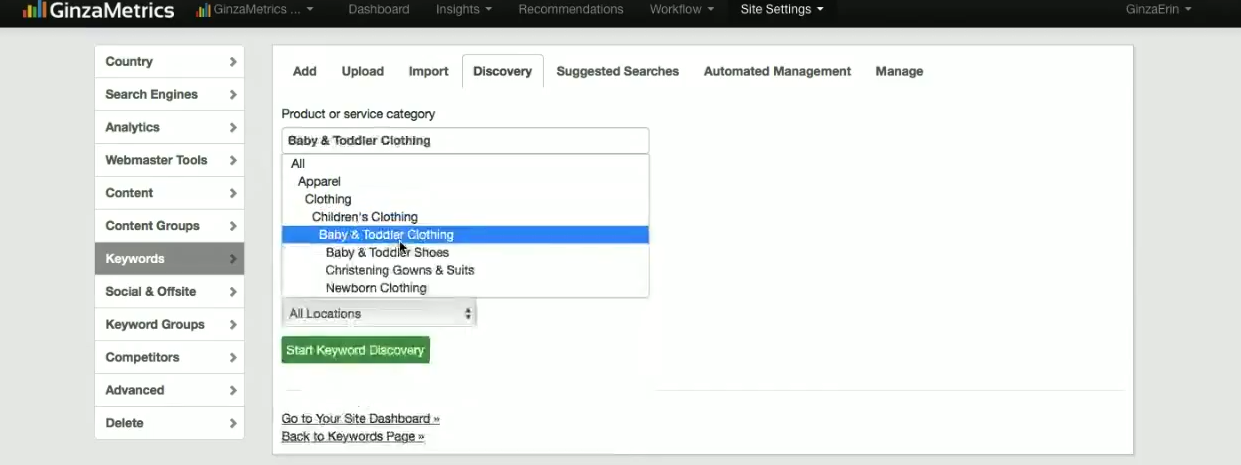Getting the attention of the C-Suite is one step closer to making SEO a priority and promoting the benefits of search data for marketing, advertising, public relations, and product development. The challenge is telling a story the C-Suite wants to hear and getting the level of support you need to make a difference. Before you approach upper management, begin with a grass roots approach within your organization. Showing how search data and SEO recommendations elevate everyone’s efforts will win you the internal support you’ll need to strengthen your position when you finally meet with upper management.
To begin a grassroots campaign for SEO, learn the pain points of each department in your organization and present the department head with the data and recommendations that will help them to be more successful. Now that you’ve got their attention, ask for their support and use the results of your mutual efforts in your presentation to upper management.
Begin with marketing teams – tie SEO to engagement
By now, anyone working in SEO has a good understanding of the content marketing ecosystem. You’ve probably already been busy optimizing content and providing keyword research, keyword discovery, and competitor analysis to the folks in the marketing department.
Take a deeper dive to find areas where search and social data can further enhance the customer journey and improve engagement with content. Start by creating keyword and content groups and making recommendations based on the reasons marketers are creating content in the first place. Generate reports and recommendations based on content and keywords grouped by:
- Campaign
- Geography
- Product
- Features
- Topic
When you write your reports, use marketing terminology and tie proposed recommendations into projected improvements in engagement and conversions. Generate a natural need for your data by suggesting keywords and topics that aren’t being used, but should be, based on competitor and social media analysis.
Get to know audiences and let the marketing department know when syntax has changed and when the way questions are being asked is evolving. Provide marketers with the terms and phrases they should be including in their content and suggest updating similar content with new keywords. Use search data to help marketing departments decide what new content to create and make sure it meets these standards:
 Make yourself invaluable by asking to attend strategy meetings and providing current search data to help inform future messages and mediums. In other words, answer marketing questions:
Make yourself invaluable by asking to attend strategy meetings and providing current search data to help inform future messages and mediums. In other words, answer marketing questions:
- What types of content are resonating with audiences?
- Where are they engaging with that content?
- What questions are audiences asking that lead them to brand content?
Once you’ve proven you can make the marketing process more intelligent and less of a shot in the dark, you’ll gain an ally that will help you sell your initiatives to the C-Suite.
Show product teams audience pain points with search data
While SEO has obvious benefits for marketing efforts and optimizing content, many organizations are missing out on the benefits SEO can bring to product development. Too often, new products are developed based on what the company wants to bring to market and less on solving an existing problem. Sometimes, companies are lucky enough that both of these things are true and the product or new feature is a success.
As the SEO expert in your organization, you have unique insights that can positively affect the success of new product offerings. The challenge is to present those insights in a way that the product team can immediately link to their product development efforts.
SEO recommendations to the product development team should begin with a quick analysis and review of the industry and current customers. Chances are, the product team already has this information in some form, but putting it all together in one place and comparing your current product position against industry norms and customer questions may give the team a new perspective on this information.
Share online search trends that include keyword discovery data showing where there are opportunities not currently filled by your present product and feature mix. Add value to the data by creating keywords grouped by type and organized by the most highly searched keywords related to your current product offerings. Recommend product directions based on the search patterns and search trends over a pre-determined period of time.

Help determine the most lucrative product niches by discovering current product competitors in those areas, as well as the brands that are creating content around those topics. Knowing who is already creating messaging in specific topic areas may give you insight into other competitors ready to enter that market niche.
Create further synergy by sharing the same data with the marketing team to give them an opportunity to start messaging on topics of interest to generate audience engagement before the product launch and to begin nurturing potential customers for the new product or feature.
Get technical with engineering to get SEO fixes
Make your passion the passion of the engineers who must go into the backend of the website and correct coding errors. It’s a lot more exciting to write new code and create something new than to go back and correct the nitty gritty of something that already exists.
Having a working understanding of HTML, PHP, CSS, and JavaScript will allow you to present recommendations to the engineering team in a way that streamlines their efforts and allows them to make the necessary changes quickly and then return to the projects they really want to focus on.
Create a partnership with the folks who will be making these kinds of changes and share the results of their efforts. Knowing they are making a real difference may be the catalyst that creates enthusiasm for your requests.
Now you’re ready for the C-Suite – show SEO ROI
When you’re ready to approach the C-Suite, you’ll want to emphasize how organic search traffic is critical to the organization’s success by tying recent wins with other departments to progress toward company-wide KPIs.
The C-Suite responds to professional and impactful presentations, so leave your 100 page recommendations report on your desk. Instead, focus on the recent wins you’ve experienced with various organizational teams and remind them that SEO success is dependent on data sharing across departments. Be sure to share credit for recent wins with your departmental partners and include department heads in the meeting, if possible.
When addressing the C-Suite, you’ll want to include these elements in your presentation:
- SEO wins tied to company-wide KPIs.
- Past failures as a result of poor SEO implementation or data use.
- Future failures that could occur if changes are not made.
- Strategic recommendations for individual teams.
- Workflow model to share data and results.
- Competitor comparisons to show what they’re doing that you’re not
- Platform recommendations to get the data you need, how you need it.
Search data has the potential of becoming an influential role in decisions and strategy across the organization and SEO departments are going to have to become multi-lingual to communicate how natural search engine results are critical to brand success. In addition to the departments outlined here, SEOs have critical data to share with:
- Paid search
- Social media
- Digital analysts
- Website design
- Legal
- Customer success
Communicating with all the various departments and keeping everyone updated can be a challenge, especially for large organizations. Having a platform that allows you to create customized reporting modules that are delivered on a regular schedule can help. Let us show you how.

